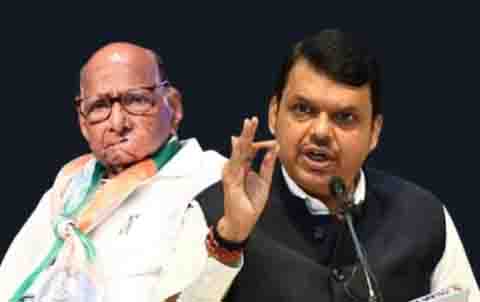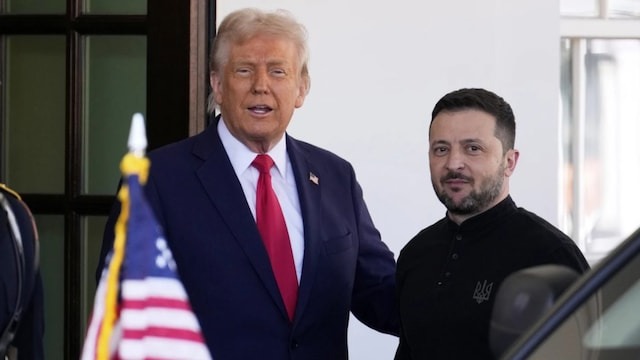
The Maha Vikas Aghadi (MVA) and Mahayuti have not announced their candidates for the post of Chief Minister in the assembly elections to be held on November 20 in Maharashtra. Maharashtra has always given a chance to local leaders for this post, but it has rarely happened here that a Chief Minister has been able to complete his term.
In the 14 assembly elections held so far in the history of Maharashtra, a total of 20 chief ministers have been elected, but only Vasantrao Naik and Devendra Fadnavis have completed their tenure.
History of Chief Ministers of Maharashtra
Congress was the ruling party since the formation of Maharashtra in the year 1960. The then Bombay State was divided into Maharashtra and Gujarat states. Then Yashwantrao Chavan was elected the first Chief Minister of Maharashtra. But during the Indo-China war in 1962, the then Prime Minister Pandit Jawaharlal Nehru appointed Chavan as the Defense Minister and made Marotrao Kannamwar the Chief Minister in his place.
In 1963, the CM post fell vacant again after Kannamwar's sudden demise. After this, Vasantrao Naik completed his term. He was re-elected CM in 1967 and completed his term till 1972. During the Emergency in 1975, Indira Gandhi's loyalist Shankarrao Chavan replaced him.
After the Emergency, the Congress was divided, but then came together to form the government.
After the Emergency ended, the Congress was out of power at the Centre for the first time and after the party's poor performance in Maharashtra, SB Chavan resigned. He was replaced by Maratha stalwart Vasantdada Patil. After this crushing defeat, the Congress split into two factions - Congress (U) and Congress (I).
In the 1978 elections, Congress (U) won 69 seats and Congress (I) won 62. The two factions joined hands to prevent the Janata Party, which had 99 of the 288 seats, from becoming the single largest party. Congress again retained Vasantdada Patil as chief minister.
Sharad Pawar became the youngest CM.
Then 38-year-old leader Sharad Pawar broke away from the Congress (U) and formed the Indian National Congress (Socialist) i.e. Congress (S). He was angry with Indira Gandhi for the successive selection of non-Maratha chief ministers in the state. Pawar then formed the Progressive Democratic Front (PDF) government along with the Janata Party and the leftist-backed Bharatiya Kisan and Mazdoor Party and became the youngest Chief Minister of the state.
However, Sharad Pawar too could not complete his term. When Indira Gandhi returned to power in 1980, she dismissed Pawar's government and imposed the President's rule for the first time. Then fresh elections were held and Congress (I) came to power in the state, with Abdul Rehman Antulay elected as the first Muslim Chief Minister.
Then between 1980 and 1995, the state saw three elections and eight chief ministers, with Sharad Pawar serving twice as CM. After the Congress (I) was re-elected in 1985, Shivajirao Patil Nilangekar was chosen as the chief minister and held the post for two years.
Sharad Pawar had by then returned to the Congress and was given the task of reining in the rising Shiv Sena in Maharashtra. He then became the Chief Minister in 1988, replacing SB Chavan. He led the Congress to victory on 141 seats in the 1990 elections and formed a government with 12 independent candidates, becoming the Chief Minister for the third time.
Sharad Pawar made an unsuccessful bid to become prime minister after the Congress won the 1991 elections and Rajiv Gandhi was assassinated. The Congress instead chose PV Narasimha Rao as prime minister and party chief. Pawar reminded the Congress of the principle of 'one person one post', but he was given the defense ministry, and Sudhakar Rao Naik was chosen to take over as chief minister.
Rise of BJP and Shiv Sena
During the demolition of Babri Masjid in December 1992, communal riots broke out in Mumbai. Sharad Pawar took charge of the state as Chief Minister. During this time, bomb blasts rocked Mumbai (then Bombay), in which 250 people died.
The 1995 elections brought the BJP-Shiv Sena alliance to power, winning 138 seats and forming the first non-Congress government in the state. Bal Thackeray chose Manohar Joshi as the Chief Minister. However, during this time Thackeray was accused of running the government through 'remote control'. Then in the year 1999, Joshi was replaced by Thackeray's loyalist and Konkan veteran Narayan Rane as the Chief Minister.
NCP-Congress coalition government
Meanwhile, Sharad Pawar once again broke ties with Congress and formed NCP. NCP made a dent in the vote share of Congress in the 1999 elections, and deprived both BJP and Congress of a majority. After this, a Congress-NCP coalition government was formed and Vilasrao Deshmukh of Congress was elected Chief Minister.
Deshmukh was forced to resign before the state went to polls in 2004 and Dalit leader Sushil Kumar Shinde was elected as caretaker chief minister. The Congress-NCP was re-elected and Deshmukh returned to power. But his second term was cut short due to the 26/11 Mumbai terror attacks, following which he resigned as chief minister.
Shankarrao Chavan's son Ashok Chavan was made the caretaker chief minister until the 2009 assembly elections. His second term ended in 2012, when he and several other leaders were caught in the Adarsh Society housing scam.
Modi wave and Fadnavis take over.
In the 2014 elections, the Modi wave almost wiped out the Congress. Shiv Sena, which had decided to contest the elections alone, had to form an alliance with the BJP and make Devendra Fadnavis the CM. During this time, differences and political bitterness continued between the two parties, but Fadnavis completed his term. He was the second CM after Vasantrao Naik to do so.
The BJP and Shiv Sena returned to power in the 2019 Maharashtra elections, but the two again fell out over the division of portfolios and CM tenure. The Shiv Sena, led by Uddhav Thackeray, began talks with arch-rivals Congress-NCP to form a coalition government, but Fadnavis forged an alliance with NCP leader Ajit Pawar and took oath as CM. Within three days, Pawar withdrew support and the Fadnavis government fell.
Uddhav Thackeray staked a claim to form the government with the support of Congress and NCP and took oath as CM. However, his tenure was also short-lived as Shiv Sena's Eknath Shinde rebelled against Thackeray, took 38 MLAs with him, and formed the Mahayuti government in the state.

 Desk
Desk Share
Share

_939839210.jpg)




